Fleurs du Mal Magazine


Or see the index
Holland Festival’s associate artist ANOHNI presents a mixed media exhibit: SHE WHO SAW BEAUTIFUL THINGS.
The installation includes a series of portraits honoring ANOHNI’s former collaborator Dr. Julia Yasuda, taken by Julia’s late wife Erika Yasuda in Tokyo in the early 1980s, and exhibited here for the first time.

Erika Yasuda’s portrets: Within the collection of the Huis Willet-Holthuysen in the centre of Amsterdam, ANOHNI layers photos, silkscreened fabrics, sculpture, video, sound and paintings from her own artistic practices within a selection of Erika Yasuda’s extraordinary portraits. The works reflect an insular and delicately composed vision of enlightened femininity and luxuriant androgyny, persevering in memory despite historical and ongoing existential threats.
ANOHNI: ‘I like the concept of ‘animism’ – that everything is alive, in an ongoing a process of transformation -and that all materiality is imbued with a certain presence, even a sense of memory that we might not entirely understand. I work with veils as a way to suggest different layers of presense. Sometimes I imagine a cacophony of moments within a timeline in a certain space, as if they were all able to express their vitality simultaneously.’
About ANOHNI: Born in England, ANOHNI lives and works in America as a musician, visual artist and theater director. In 1995 she founded her performance group The Johnsons, with which she performed with symphony orchestras in opera houses around the world, including Sydney Opera House, the Royal Opera House in London, Teatro Real in Madrid and Carnegie Hall in New York.
ANOHNI has presented exhibitions of her visual work at the Nikolaj Kunsthal, Kunsthalle Bielefeld, The Hammer Museum, The Kitchen and Sikkema Jenkins Gallery in New York. She co-facilitated the art project FUTURE FEMINISM presented at The Hole, New York in 2014 and was part of ANOHNI’s artistic residency in Aarhus, European Capital of Culture in 2017.
The Willet-Holthuysen House: The imposing Willet-Holthuysen House is situated in the center of Amsterdam. The house on the Herengracht contains many period rooms. Its beautiful salons are in the style of Louis XIV, and the garden is symmetrically designed as a French formal garden.
Address: Herengracht 605, 1017 CE Amsterdam.
Open daily from 10 a.m. 5 p.m.
• https://www.amsterdammuseum.nl/
june 4 until october 29 – 2023
Willet-Holthuysen House – Amsterdam
• fleursdumal.nl magazine
More in: #Editors Choice Archiv, anohni = antony, Archive A-B, Archive A-B, Art & Literature News, AUDIO, CINEMA, RADIO & TV, Holland Festival, Photography
Les treize histoires et sept poèmes qui composent ce livre se répondent et se complètent:

Au fil des récits, des fables, des fragments de vie, des poésies, il s’agit toujours de dévoiler un mystère, un secret, la part souterraine…
Les mots s’insinuent comme il faut pour toucher ce qu’il y a à toucher, et dire ce qu’il y a à en dire. Avec finesse et intensité.
Et c’est un plaisir de plonger dans ces textes – débordants d’imagination, de fantaisie, basculant souvent de l’observation la plus juste à une imprévisible drôlerie.
Sophie Marceau: actrice, réalisatrice et scénariste, elle publie avec La Souterraine son deuxième livre après Menteuse (Stock, 1996).
Sophie Marceau (Auteur)
La Souterraine
Cinéma, littérature et poésie
Editeur Seghers
Paru le 4 mai 2023
Format: broché
EAN 9782232146831
ISBN 2232146839
SKU 5292114
Nombre de pages 160
Format 14cm x 19cm
€ 17,00
• fleursdumal.nl magazine
More in: #Editors Choice Archiv, - Book News, - Bookstores, Archive M-N, Archive M-N, AUDIO, CINEMA, RADIO & TV, THEATRE
The only book of poetry to date devoted to the Rwanda genocide and published in this country, this is a work of nonfictional poetry, a cousin in genre to the nonfictional novel.
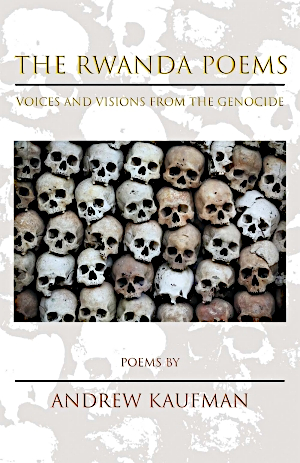 It is based not only on the poet’s observations and encounters during months spent in post-genocide Rwanda, but on his numerous extensive interviews with survivors, all of whom lost most if not all of their families, and with convicted genocide perpetrators, conducted in prisons.
It is based not only on the poet’s observations and encounters during months spent in post-genocide Rwanda, but on his numerous extensive interviews with survivors, all of whom lost most if not all of their families, and with convicted genocide perpetrators, conducted in prisons.
The result is a startling book of poems that by turns is unthinkably horrifying, heartbreaking, and enraging, yet which at times breaks unexpectedly into stunning revelatory moments of grace.
As a poetry of witness this book reveals what it is like to carry on with daily life in a society where nearly every adult male is either a genocide survivor or perpetrator, almost every woman either a survivor or the wife of a perpetrator, and where nearly every child at the time of the genocide witnessed multiple killings, often of immediate family members.
Ranging from free verse to stanzaic forms, this book by an NEA-award-winning poet uses tools and methods of poetry to distil each of its many varied voices to its essence, allowing those who are heard in these poems to speak for themselves, often in juxtapositions that lend the book the structure and tension of a drama. Considered more broadly, The Rwanda Poems is a book about the extremities of evil that the human psyche is capable of enduring and inflicting, and the resulting psychic costs to survivors and perpetrators.
Andrew Kaufman‘s books include Earth’s Ends, winner of the Pearl Poetry Prize, The Cinnamon Bay Sonnets, winner of the Center for Book Arts book award, Both Sides of the Niger (Spuyten Duyvil Press), and the COMPLETE CINNAMON BAY SONNETS (Rain Mountain Press). The time he spent in Rwanda was made possible in part by an NEA grant. He has taught literature and writing at a number of colleges and universities, and resides in New York City.
The Rwanda Poems
Voices and Visions from the Genocide
by Andrew Kaufman
Language: English
Publisher: NYQ Books
10 Mar. 2023
Product Number:9781630450816
ISBN-10: 1630450812
ISBN-13: 978-1630450816
Pages:110
Paperback
£12.13
• fleursdumal.nl magazine
More in: #Editors Choice Archiv, - Book News, - Bookstores, Archive K-L, Archive K-L
Weaving Sundown in a Scarlet Light
Fifty Poems for Fifty Years
A magnificent selection of fifty poems to celebrate three-term US Poet Laureate Joy Harjo’s fifty years as a poet.
 In this gemlike volume, Harjo selects her best poems from across fifty years, beginning with her early discoveries of her own voice and ending with moving reflections on our contemporary moment.
In this gemlike volume, Harjo selects her best poems from across fifty years, beginning with her early discoveries of her own voice and ending with moving reflections on our contemporary moment.
Weaving Sundown in a Scarlet Light traces every occasion of a lifetime; it offers poems on birth, death, love, and resistance; on motherhood and on losing a parent; on fresh beginnings amidst legacies of displacement.
Generous notes on each poem offer insight into Harjo’s inimitable poetics as she takes inspiration from sunrise and horse songs and jazz, reckons with home and loss, and listens to the natural messengers of the earth.
Joy Harjo is a member of the Muscogee (Creek) Nation. She is the author of nine poetry collections and two memoirs, most recently Poet Warrior. The recipient of the 2023 Ivan Sandrof Lifetime Achievement Award, the 2023 Bollingen Prize for American Poetry, and the 2017 Ruth Lilly Poetry Prize, she lives in Tulsa, Oklahoma.
Weaving Sundown in a Scarlet Light:
Fifty Poems for Fifty Years
by Joy Harjo (Author),
Sandra Cisneros (Foreword)
November 1, 2022
Publisher: W. W. Norton & Company
Language: English
Hardcover: 160 pages
ISBN-10: 1324036486
ISBN-13: 978-1324036487
$21.49
• fleursdumal.nl magazine
More in: #Archive Native American Library, #Editors Choice Archiv, - Book News, - Bookstores, Archive G-H, Archive G-H, Joy Harjo
Le premier recueil de poésie d’Arthur Teboul, auteur et chanteur du groupe Feu! Chatterton.
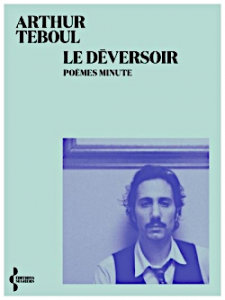 Comme chanteur, Arthur Teboul incarne un esprit rock et romantique, entre popanglo-saxonne (Radiohead) et chanson française (Ferré, Gainsbourg, Bashung), entre ambiance feutrée d’un jazz club et néons perçants d’une scène underground ; poétique et inspiré, il est de ces nouvelles voix talentueuses qui parlent à la jeunesse et, brouillant les frontières habituelles entre les genres, redéfinissent de manière originale et séduisante la scène musicale en France.
Comme chanteur, Arthur Teboul incarne un esprit rock et romantique, entre popanglo-saxonne (Radiohead) et chanson française (Ferré, Gainsbourg, Bashung), entre ambiance feutrée d’un jazz club et néons perçants d’une scène underground ; poétique et inspiré, il est de ces nouvelles voix talentueuses qui parlent à la jeunesse et, brouillant les frontières habituelles entre les genres, redéfinissent de manière originale et séduisante la scène musicale en France.
Auteur des paroles du groupe (des paroles au caractère quasiment visionnaire, qui marquent par leur capacité à saisir l’air du temps), Arthur Teboul confesse qu’il est venu à la musique par la littérature. Il plaide pour une existence où la poésie aurait une plus grande part. On devine facilement qu’il porte en lui la dimension d’un écrivain.
De fait, entre les phases d’écriture des chansons de ses albums, il a pris l’habitude de composer ce qu’il appelle des poèmes minute, lors de séances de ” déversement ” ou d’écriture automatique. Entre le poème en prose et le récit onirique, ce sont de courts textes dont les idées et les émotions seraient les protagonistes, riches en inventions, pleins de mystère, de vivacité, de drôlerie, d’étrangeté et de beauté. Ils composent ce recueil, Le Déversoir.
Arthur Teboul est le chanteur de Feu! Chatterton. Après le succès de l’album Palais d’Argile et de son single Un monde nouveau qui lui ont valu trois nominations aux Victoires de la musique en 2022 (meilleur artiste masculin, meilleur album, meilleure chanson), le groupe a sillonné la France. Une impressionnante tournée couronnée de trois disques d’or, quis’est conclue par trois Olympia à guichet fermé. Le Déversoir est son premier recueil de poésie.
Auteur: Arthur Teboul
Poésie
Le Déversoir – Poèmes minute
Editeur: Seghers
Paru le 16 mars 2023
EAN 9782232146626
ISBN 2232146626
Nombre de pages: 256
Format 14cm x 19cm
Broché
€ 18,00
• fleursdumal.nl magazine
More in: # Music Archive, #Editors Choice Archiv, - Book News, - Bookstores, Archive S-T, Archive S-T, Thomas Chatterton

Eine Zierde zwar ist das Alter des Geschlechts
Eine Zierde zwar ist das Alter des Geschlechts,
aber eigentlich doch nur eine Aufforderung,
den Ahnen ähnlich zu werden.
Ulrich von Hutten
Ritter und Dichter
(* 21.04.1488, † 29.08.1523)
Eine Zierde zwar ist das Alter des Geschlechts
• fleursdumal.nl magazine
More in: #Editors Choice Archiv, - Archive Tombeau de la jeunesse, Archive G-H, Archive G-H, Hutten, Ulrich von
The extraordinary true story of the Stasi’s poetry club: Stasiland
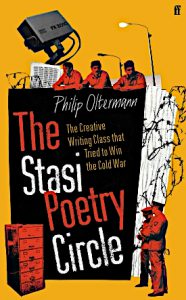 East Germany’s secret police were convinced that writers were embedding messages in their work.
East Germany’s secret police were convinced that writers were embedding messages in their work.
This reveals how soldiers had monthly meetings to learn how to write lyrical verse, weaponising poetry in the struggle against the class enemy.
A literary detective story with spies who were moulded into poets; poets who spied on fellow writers.
Philip Oltermann grew up in Schleswig-Holstein and studied English and German literature at Oxford University and University College London.
As a journalist he has written for Granta, the LRB and the Guardian, for whom he is the Berlin Bureau Chief.
The Stasi Poetry Circle (Hardback)
Philip Oltermann
Publ: Faber & Faber
Date Published 17.02.2022
ISBN: 9780571331192
Hardcover
Price £14.99
• fleursdumal.nl magazine
More in: #Editors Choice Archiv, - Book News, - Bookstores, Archive O-P, Archive O-P, REPRESSION OF WRITERS, JOURNALISTS & ARTISTS
When poet Amy Key was growing up, she looked forward to a life shaped by romance, fuelled by desire, longing and the conventional markers of success that come when you share a life with another person.
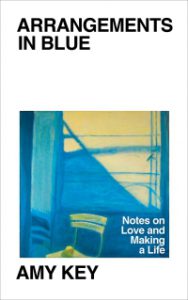 But that didn’t happen for her. Now in her forties, she sets out to explore the realities of a life lived in the absence of romantic love.
But that didn’t happen for her. Now in her forties, she sets out to explore the realities of a life lived in the absence of romantic love.
Using Joni Mitchell‘s seminal album Blue – an album that shaped Key’s expectations of love – as her guide, she examines the unexpected life she has created for herself.
Building a home, travelling alone, choosing whether to be a mother, recognising her own milestones, learning the limits of self-care and the expansive potential of self-friendship, Key uncovers the many forms of connection and care that often go unnoticed.
With profound candour and intimacy, Arrangements in Blue explores the painful feelings we are usually too ashamed to discuss: loneliness, envy, grief and failure.
The result is a singular work – a beautifully-written and essential book about building a life on your own terms, which inspires us to live and love more honestly.
Arrangements in Blue
by Amy Key
Poetry
English
Vintage Publishing
(Ww Norton & Co)
6 April 2023
ISBN: 9781787333895
Hardback
224 pages
Price: 27,99 euro
•fleursdumal.nl magazine
More in: #Editors Choice Archiv, - Book News, - Bookstores, Archive K-L, Archive K-L, Joni Mitchell
Clive Branson (1907–1944) was born in Ahmednagar, India, the son of a major in the Indian army.
He studied at the Slade School of Art and exhibited at the Royal Academy when he was just 23. Five of his paintings are today in the Tate. His daughter is the painter Rosa Branson.
 In 1932 Branson joined the Communist Party. He taught for the National Council of Labour Colleges, spoke at weekly open-air meetings on Clapham Common and with his wife Noreen managed a Party bookshop. He took a leading role in driving Mosley’s British Union of Fascists out of Battersea, was responsible for the formation of a local Aid Spain Committee and fought with the International Brigades in Spain.
In 1932 Branson joined the Communist Party. He taught for the National Council of Labour Colleges, spoke at weekly open-air meetings on Clapham Common and with his wife Noreen managed a Party bookshop. He took a leading role in driving Mosley’s British Union of Fascists out of Battersea, was responsible for the formation of a local Aid Spain Committee and fought with the International Brigades in Spain.
Taken prisoner at Calaceite, he spent eight months in Franco’s prison camps. After he was repatriated, Branson toured Britain raising money and support for the Spanish Republic. During the Blitz he painted Battersea street-scenes for the Artists International Association. Conscripted in 1941, he served as a tank commander in the Royal Armoured Corps. He was killed in action in Burma, aged just 36.
The Selected Poems of Clive Branson brings together, for the first time, the best of his surviving poetry. Passionate and committed, it’s a first-hand account of the most violent years of the twentieth-century – Britain in the Slump, Spain during the civil-war, Fascist prisons, the London Blitz, the cultural shock of India and its poverty, the war against Japan – recorded with a painterly eye and a communist faith in the power of the people.
Richard Knott (Editor) is a writer and poet. He has written extensively on aspects of modern history, including the experience of war artists (The Sketchbook War); war correspondents (The Trio); and most recently the surveillance of writers and artists by the Security Services over three decades: (The Secret War Against the Arts). He has also published two collections of poetry.
On Being Questioned After Capture: Alcaniz
I stood before my questioner who asked
‘Why leave home?
Why have you come?
Why?’ He must have guessed
‘Because he is a Communist.’
I thought of all the answers I could give
whether death is correct or whether to save
life for a rainy day
and told a lie to cheat his bullet with a word
to use a bullet afterward
On him the bigger lie – a conscript
‘volunteer’ to rape Spain where she slept
to save his own skin
he had come when he sought ‘The Leader’ on his hands and
knees
To crush a thousand years in half an hour
To make Guernica
a wilderness.
I could wait and so could lie
for adjournment to another court
meanwhile to live on my bended knee
to make occasion for another start.
I could imitate the victor, cringe
till I and the world beyond
take our revenge.
1939
Clive Branson
(1907–1944)
Selected Poems of Clive Branson
Edited by Richard Knott
Paperback
Release date: 01 May, 2023
Publisher: Smokestack Books
Language: English
122 pages
ISBN-10:1739173007
ISBN-13:978-1739173005
Price: £8.99
• fleursdumal.nl magazine
More in: #Editors Choice Archiv, *War Poetry Archive, - Book News, - Bookstores, Archive A-B

To a Lost Love
I cannot look upon thy grave,
Though there the rose is sweet:
Better to hear the long wave wash
These wastes about my feet!
Shall I take comfort? Dost thou live
A spirit, though afar,
With a deep hush about thee, like
The stillness round a star?
Oh, thou art cold! In that high sphere
Thou art a thing apart,
Losing in saner happiness
This madness of the heart.
And yet, at times, thou still shalt feel
A passing breath, a pain;
Disturb’d, as though a door in heaven
Had oped and closed again.
And thou shalt shiver, while the hymns,
The solemn hymns, shall cease;
A moment half remember me:
Then turn away to peace.
But oh, for evermore thy look,
Thy laugh, thy charm, thy tone,
Thy sweet and wayward earthliness,
Dear trivial things, are gone!
Therefore I look not on thy grave,
Though there the rose is sweet;
But rather hear the loud wave wash
These wastes about my feet.
Stephen Phillips
(1864 – 1915)
To a Lost Love
• fleursdumal.nl magazine
More in: #Editors Choice Archiv, Archive O-P, Archive O-P

Ain new lied herr Ulrichs von Hutten
1
Ich habs gewagt mit sinnen
und trag des noch kain rew,
mag ich nit dran gewinnen,
noch muoß man spüren trew;
dar mit ich main nit aim allain,
wenn man es wolt erkennen:
dem land zuo guot, wie wol man tuot
ain pfaffenfeind mich nennen.
2
Da laß ich ieden liegen
und reden was er wil;
hett warhait ich geschwigen,
mir wären hulder vil:
nun hab ichs gsagt, bin drum verjagt,
das klag ich allen frummen,
wie wol noch ich nit weiter fliech,
villeicht werd wider kummen.
3
Umb gnad wil ich nit bitten,
die weil ich bin on schuld;
ich hett das recht gelitten,
so hindert ungeduld,
daß man mich nit nach altem sit
zuo ghör hat kummen laßen;
villeicht wils got und zwingt sie not
zuo handlen diser maßen.
4
Nun ist oft diser gleichen
geschehen auch hie vor,
daß ainer von den reichen
ain guotes spil verlor,
oft großer flam von fünklin kam,
wer waiß ob ichs werd rechen!
stat schon im lauf, so setz ich drauf:
muoß gan oder brechen!
5
Dar neben mich zuo trösten
mit guotem gwißen hab,
daß kainer von den bösten
mir eer mag brechen ab
noch sagen daß uf ainig maß
ich anders sei gegangen,
dann eren nach, hab dise sach
in guotem angefangen.
6
Wil nun ir selbs nit raten
dis frumme nation,
irs schadens sich ergatten,
als ich vermanet han,
so ist mir laid; hie mit ich schaid,
wil mengen baß die karten,
bin unverzagt, ich habs gewagt
und wil des ends erwarten.
7
Ob dann mir nach tuot denken
der curtisanen list:
ain herz last sich nit krenken,
das rechter mainung ist;
ich waiß noch vil, wöln auch ins spil
und soltens drüber sterben:
auf, landsknecht guot und reuters muot,
last Hutten nit verderben!
Ulrich von Hutten
Ritter und Dichter
(* 21.04.1488, † 29.08.1523)
Ain new lied herr Ulrichs von Hutten
• fleursdumal.nl magazine
More in: #Editors Choice Archiv, - Archive Tombeau de la jeunesse, Archive G-H, Archive G-H, Hutten, Ulrich von
The poems in Mirabilia test the relationship between art and politics.
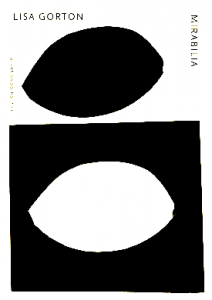 They are ekphrastic poems complicated by historical narrative; or, they are political poems, inspired by artworks. The title poem is a tribute to the pangolin, the world’s most-trafficked mammal – implicated, some say, in the evolution of coronavirus.
They are ekphrastic poems complicated by historical narrative; or, they are political poems, inspired by artworks. The title poem is a tribute to the pangolin, the world’s most-trafficked mammal – implicated, some say, in the evolution of coronavirus.
Written in Fibonacci syllabics, it is also a reflection on Marianne Moore’s poem ‘The Pangolin’, with its sense of nature’s perpetuity – lost in the years since her poem was written. The final sequence ‘Great World Atlas’ tracks the destructive extent of nuclear testing across the world in the 1960s. It was written for Izabela Pluta’s artist’s book Figures of Slippage and Oscillation.
The sequence ‘Tongue’ reflects on da Vinci’s 1478 painting The Benois Madonna, including the circumstances of its creation in the Pazzi conspiracy and the life of Fioretta del Cittadino – perhaps the painting’s model – who gave birth to the child of the murdered man.
Her child was taken; she was written out of the record. In other poems too, Gorton reflects on the experience of the female muse, wife, or mother.
Shortlisted: NSW Premier’s Literary Awards – Poetry 2023
Lisa Gorton has a PhD on the poetry of John Donne from the University of Oxford. She is a poet and novelist, essayist and reviewer. Her first poetry collection Press Release won the Victorian Premier’s Literary Award for Poetry; her second, Hotel Hyperion was awarded the Philip Hodgins Memorial Medal; and her third, Empirical, was shortlisted for the Prime Minister’s and NSW Premier’s Literary Awards for Poetry. Her novel The Life of Houses was the co-winner of the 2016 Prime Minister’s Literary Award for Fiction. She is the author of Cloudland, a novel for children.
Mirabilia
Poetry
by Lisa Gorton
Publisher: Giramondo Publishing (1 August 2022)
Language: English
Paperback: 96 pages
ISBN-10: 1922725307
ISBN-13: 978-1922725301
Dimensions: 20 x 14 x 1.5 cm
Price: aus. $ 25.00
• fleursdumal.nl magazine
More in: #Editors Choice Archiv, - Book News, - Bookstores, Archive G-H, Archive G-H
Thank you for reading Fleurs du Mal - magazine for art & literature